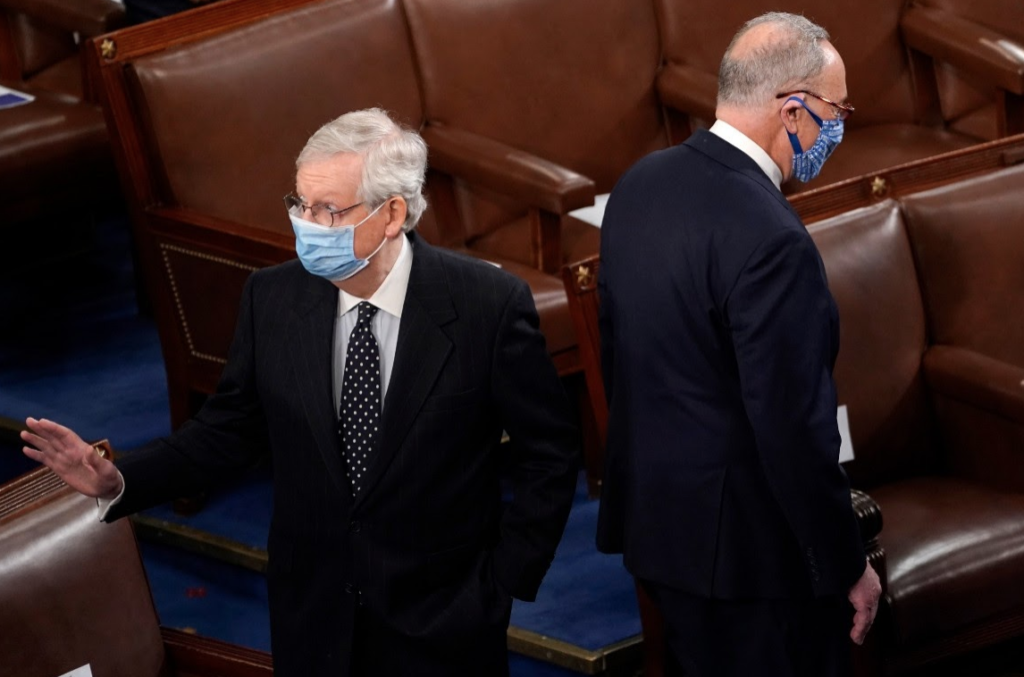Senate Unanimously Agrees to Power-Sharing Agreement

Image Courtesy of Politico
By Jeremy Perillo
The Senate unanimously agreed to a bipartisan power-sharing agreement, brokered by Majority Leader Chuck Schumer (D-NY) and Minority Leader Mitch McConnell (R-KY), which will allow the body to function given its 50-50 split along party lines. The last time the Senate had a similar makeup was in 2001.
“I am happy to report this morning that the leadership of both parties have finalized the organizing resolution for the Senate,” Schumer said. “We will pass the resolution through the Senate today, which means that committees can promptly set up and get to work with Democrats holding the gavels.”
“This power-sharing agreement is almost identical to the 2001 agreement and will allow the Senate to be fairly run as an evenly-split body,” McConnell said in a statement.
Even though the Democrats had emerged into the majority with the swearing-in of the two new Georgia Senators, the lack of an organizing resolution left most of the power dynamic to remain from the previous Congress. Republicans still held onto their gavels and were actively leading their committees despite their being in the minority. Additionally, new members were left without committee assignments for two weeks.
The agreement on the organizing resolution will resolve this lapse as the Democrats officially take over in their capacity as the majority party. Lead Democrats on committees will be given their gavels by their Republican predecessors, new committee assignments will be issued, and new Senators will be assigned to their preliminary posts.
Besides the difficulty of navigating a 50-50 split during a contentious time in American politics, both Schumer and McConnell squabble over the legislative filibuster. Schumer and much of the progressive left sought to eliminate it once coming into power. Given that he is now in the minority, it’s unsurprising that McConnell would want to preserve it; the filibuster is a large aid to the minority party. This deliberation contributed to the elongated negotiations.
Senator Joe Manchin (D-WV) and Senator Kyrsten Sinema (D-AZ) came out against eliminating the 60-vote threshold, thus giving McConnell an assurance it would not be eliminated, and allowing negotiations to move forward.
While the 2001 organizing resolution was used as a template for the current negotiations, the country, the Senate, and the issues at hand are vastly different than what was being dealt with two decades ago. Given such unprecedented times, and the countries inflicting polarization, there is no doubt that the work done in the Senate for at least the next two years will be controversial, consequential, and lauded.






